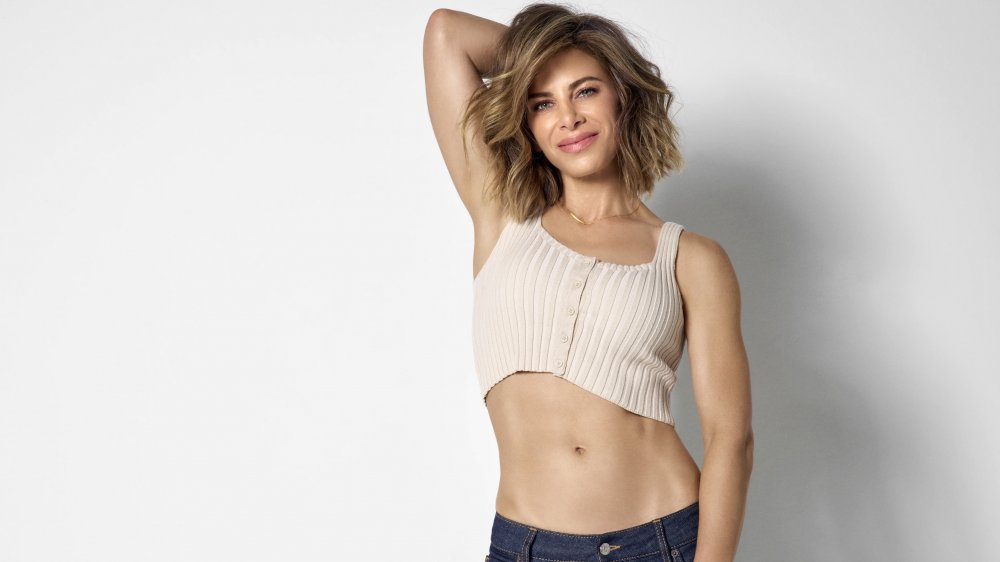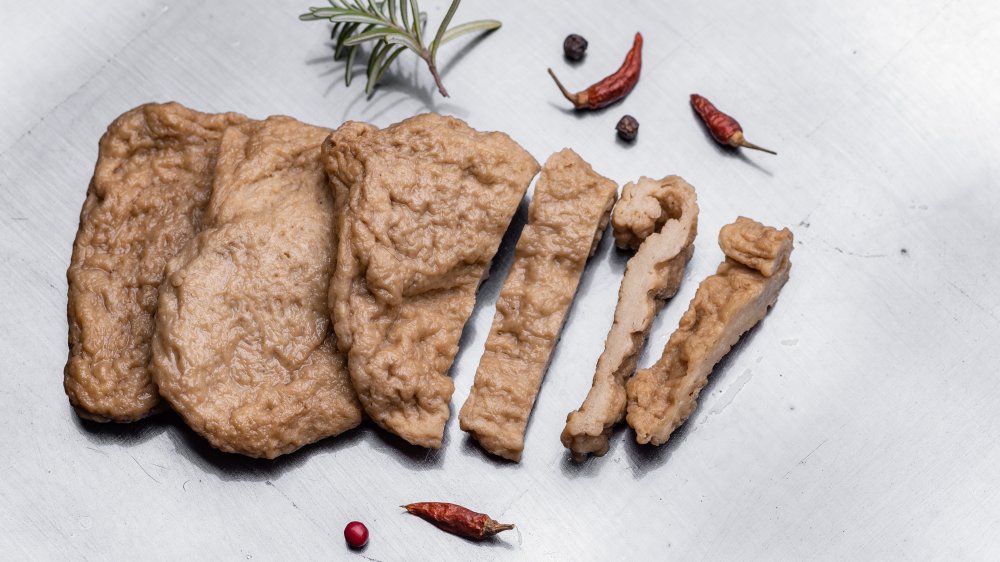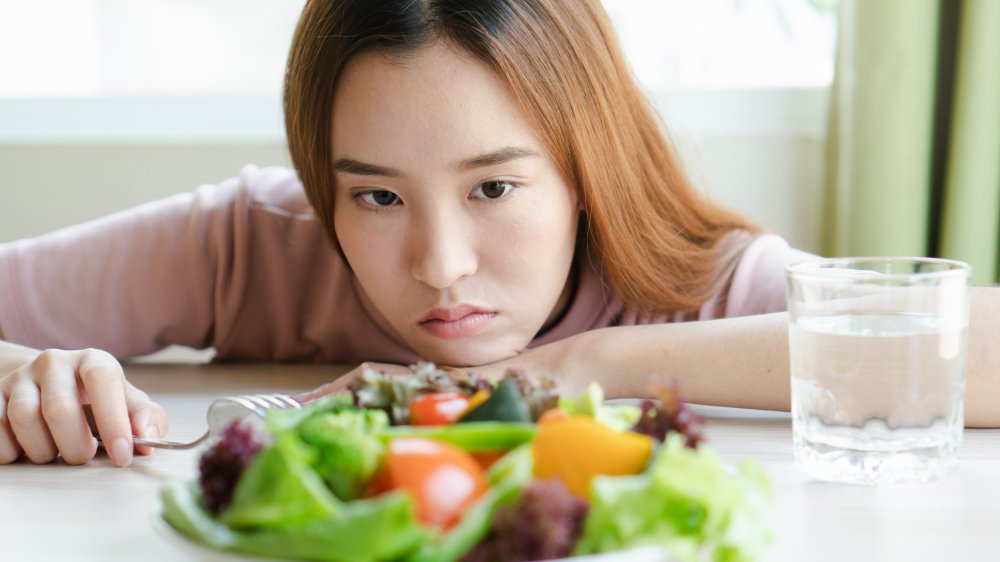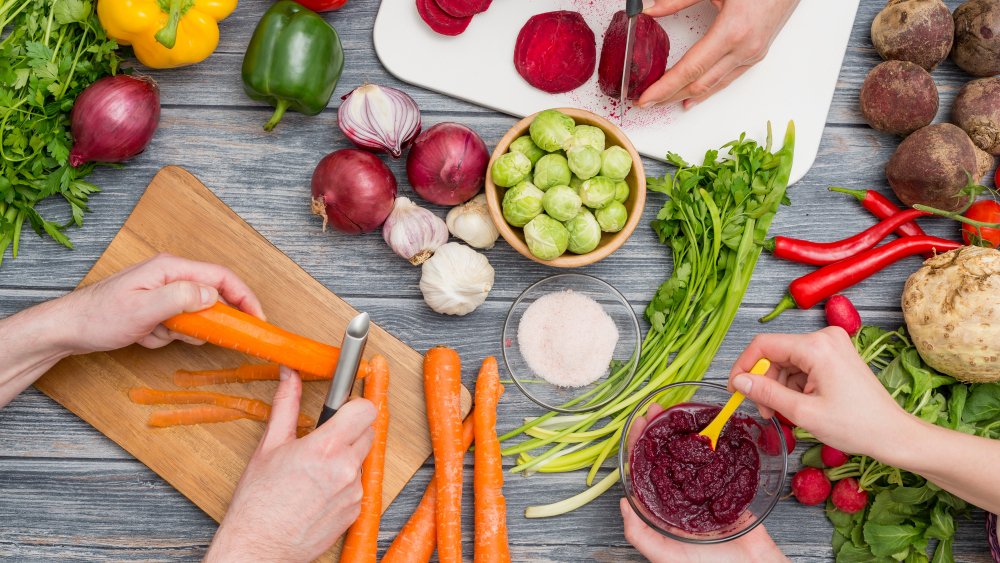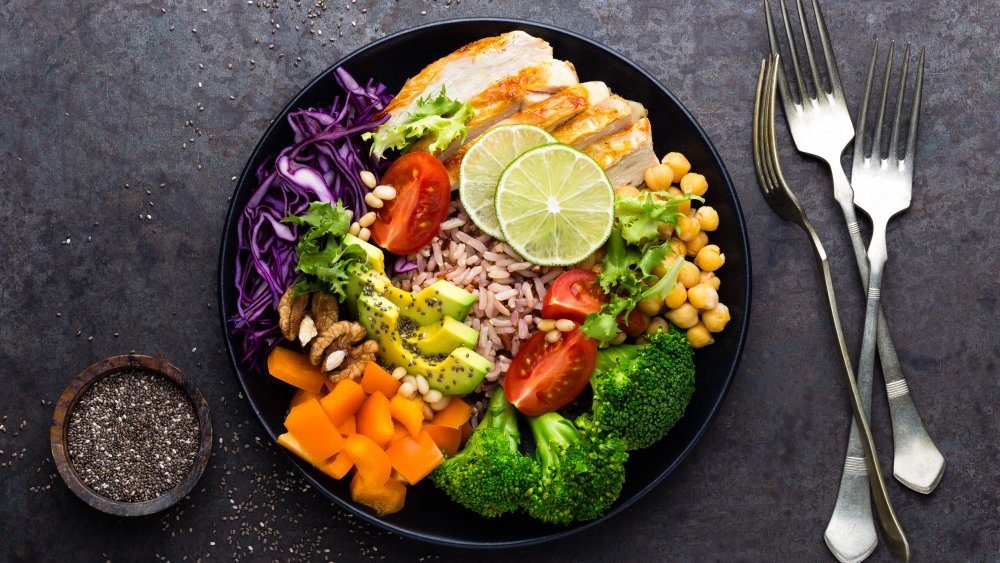The Real Reason Jillian Michaels Doesn't Like The Vegan Diet
The vegan diet is one of the fastest growing food trends in the world, with celebrities ranging from singer Billie Eilish to Game of Thrones' Peter Dinklage forgoing meat, cheese, and all animal-based food for a variety of health and humanitarian reasons (per Insider). Recent concerns about meat safety due to the coronavirus are likely to further drive the trend of veganism, with global sales of plant-based meats expected to reach $4.2 billion in 2021, according to Vegconomist.
But is eating a vegan diet actually healthy? In an exclusive interview with The List, Jillian Michaels, health and fitness expert and creator of the Jillian Michaels Fitness App (available in iOS, Android and on the Samsung Health wellness platform), said that as much as she loves the power of plants, she doesn't recommend going vegan.
This is a position that Michaels offers with mixed emotions. "I really hate going after this diet because it's better for the environment and I love animals, but from a health perspective it simply is not the best," she said. This is because, Michaels explained, "any type of diet steeped in extremes inherently creates potential for nutrient deficiency." She had other health concerns about veganism, as well.
Vegan foods can be overly processed and full of chemicals
Michaels is a huge fan of fruits and vegetables, but many people who become vegans include much more than fresh kale and the occasional avocado in their daily regimen. Instead, they eat meat and dairy substitutions that may be much less healthy than the animal byproduct they're designed to taste like. "Many who engage in a vegan diet don't know what they are doing and end up eating a ton of processed grains and soy. Neither of which are good for you — AT ALL," Michaels said.
Her biggest concern is with foods made from soybeans. "Most soy is GMO, which means it's not even naturally occurring and it's heavily sprayed with pesticides, herbicides, fungicides, etc.," Michaels explained. She did note that there are some types of soy-based products that are actually quite good for you, like miso, which is fermented. Non-fermented soy, however, is bad for your thyroid, Michaels said.
Veganism may be especially unhealthy for women
Ah, the joys of being a woman — we all know how a monthly cycle can ruin a day at the beach or make us think twice about wearing those new white shorts. According to Jillian Michaels, menstruation is also a good reason to reconsider your plans to go vegan. "Being vegan has greater risk for women over men because we bleed every month and lose iron," she explained. And, while it's true that spinach and other vegetables do contain iron, Michaels said this "non-heme" iron "simply isn't the same as iron found in animal protein," which is called "heme." What's the difference? "Non-heme iron simply isn't as bioavailable," or easy for the body to absorb, Michaels explained.
If your body isn't getting adequate iron, you could end up becoming anemic, a condition that may be a particular problem for female vegans, according to Michaels. "Iron is a major component of hemoglobin, which is a protein in red blood cells that carries oxygen from your lungs to all parts of the body ," she said. So if you are anemic, "this can lead to fatigue and impaired immunity amongst other things." Even if you don't feel tired and weak, we all need our iron, Michaels said. "Iron is essential for the normal production and function of various cells and hormones."
Vegans need to watch out for vitamin deficiency
Iron isn't the only nutrient we need to get directly from animals, Michaels noted. Both women and men need to get healthy omega 3 fats, EPA and DHA, for optimal heart and brain health — and the richest source of omega 3 fats is going to be coldwater fish; the U.S. Department of Agriculture, the American Heart Association, and the American Dietetic Association recommend eating two 8-ounce servings of fish each week (per WebMD). There's a misconception that plant-based foods supply adequate omega 3 fats, Michaels said. "Contrary to popular belief, these fats are not sufficiently created from plant based omega ALA," she explained, adding that vegans also run the risk of a vitamin B12 deficiency.
And, not that we want to bring vanity into the equation, but Michaels also claims that avoiding all animal byproducts may also do a number on your looks. We're talking dry hair and skin and brittle nails. That's because collagen, which supports hair, skin, and nails, comes from animals. This nutrient has other benefits to the human body as well, including support of the intestinal lining.
Michaels says we still need to eat our vegetables -- lots of them!
If Jillian Michaels' hesitation about veganism is making you question whether you really do need to eat your vegetables, don't misunderstand her: "Ultimately, a plant-based diet is best," she emphasized. You should still be piling your plate high with plants of all kinds: fruits, vegetables, nuts, and seeds.
But, Michaels said, "clean, organic, ethically sourced meat in moderation is ideal. Possibly consider eggs a couple times a week from a farmer's market where the chickens are humanely kept and the eggs are organic." Birds aren't the only source of animal protein you should have in your diet, Michaels added. "Incorporate wild salmon once a week," she said.
If you enjoy some steak or a juicy burger, red meat may also be a good option, but you should be picky about what kind you choose. "Consider eating some organic, grass-fed, grass finished red meat once every two weeks," Michaels explained.
